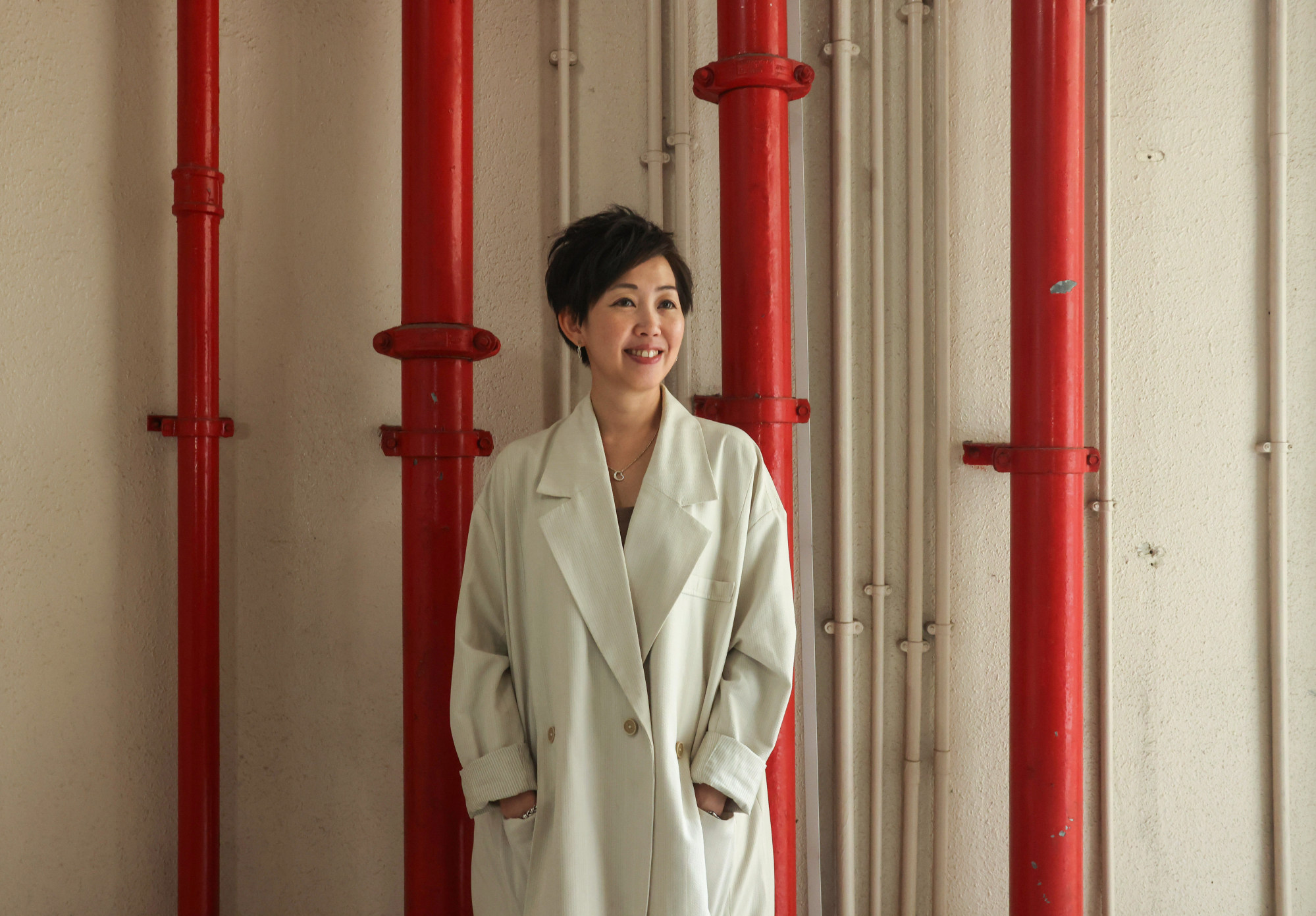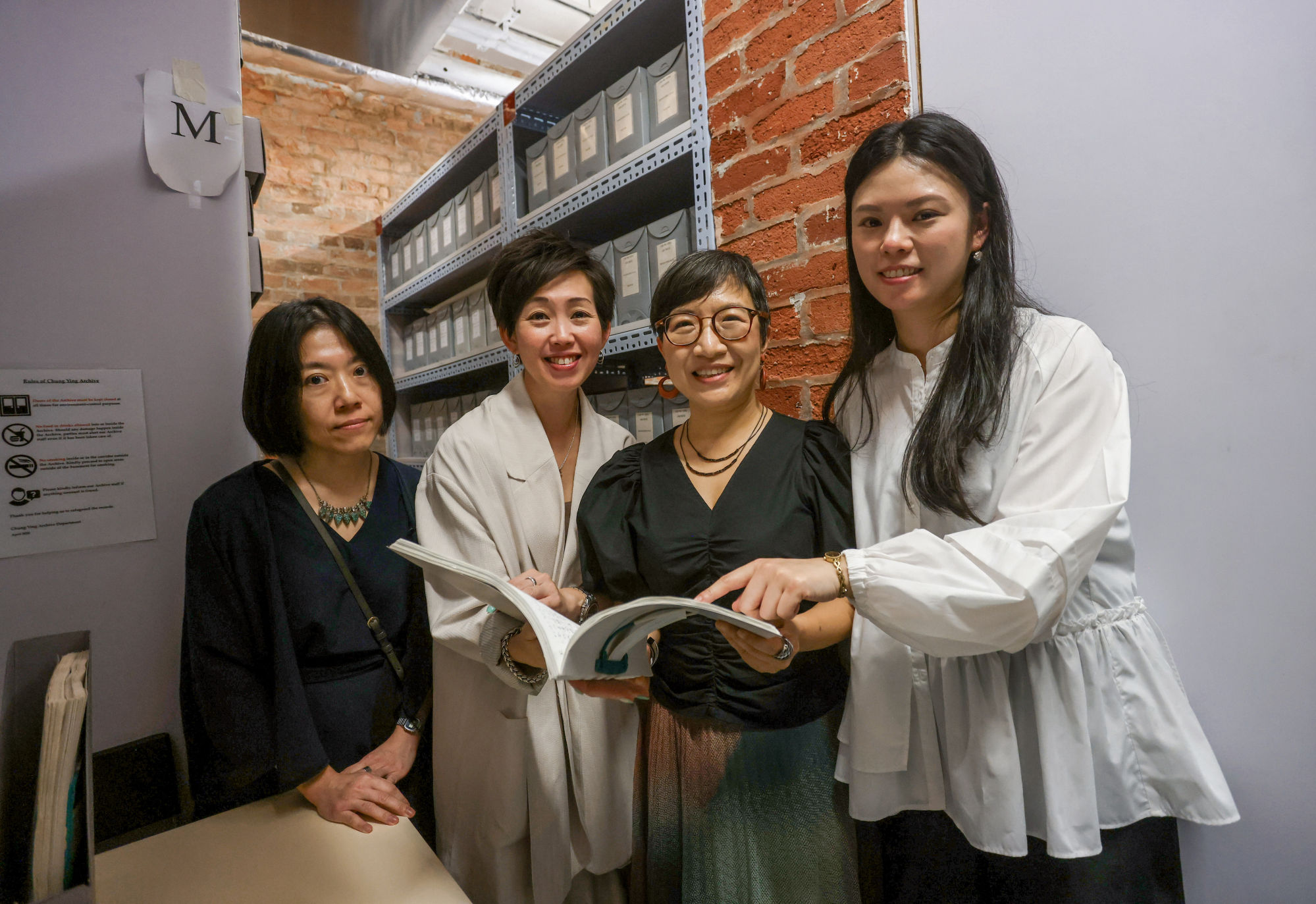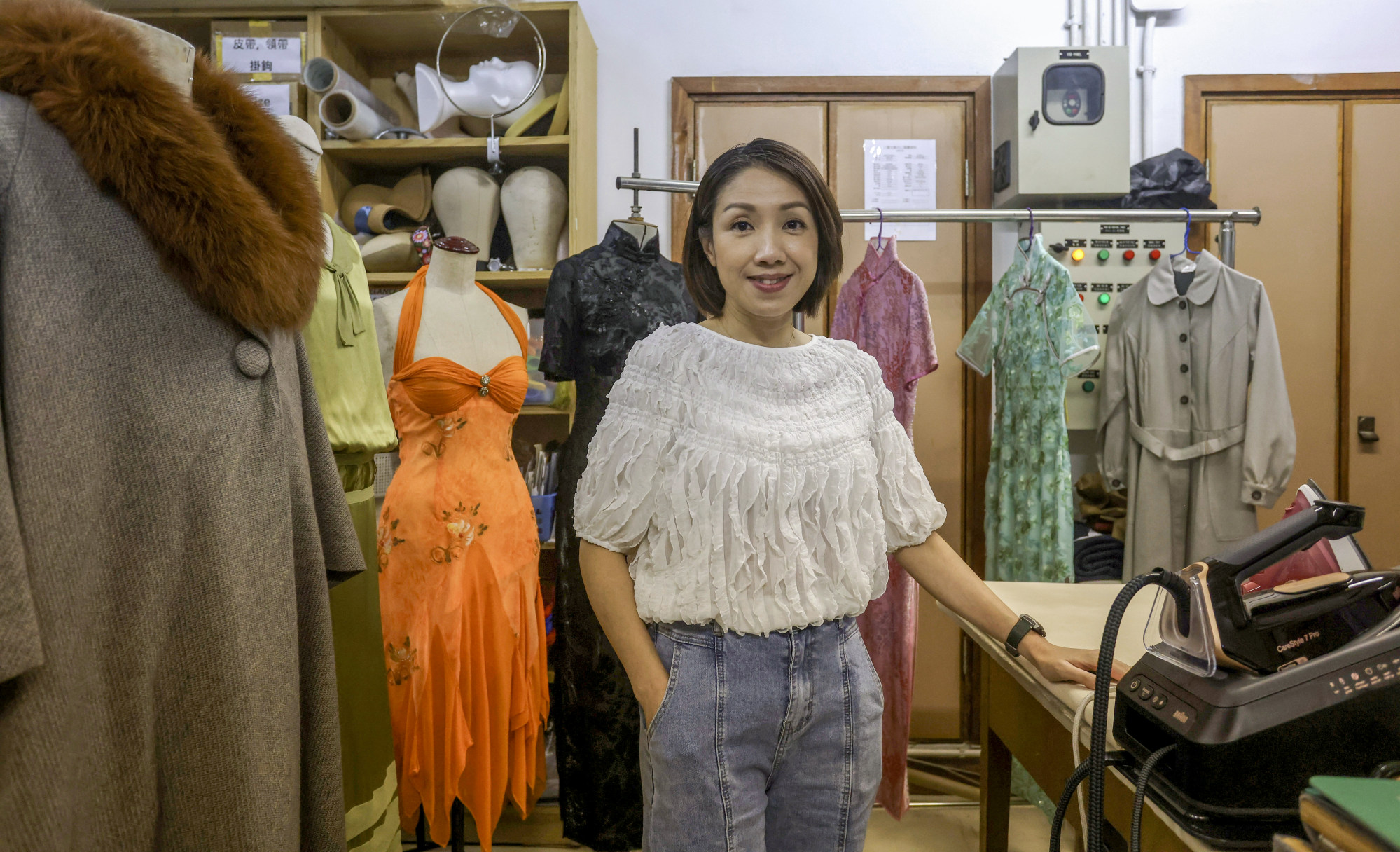“The theatre company was established in 1979, but the archive was not started until 2018,” said Christy Lee Shuk-kwan, the company’s head of programme and communications.
“We hope to keep items that are of commemorative value to us and at the same time record the story and meaning behind them. We hope they will be accessible to the public. Only then will the archive be a true account for the industry and be helpful for future research.”
The conservation effort was made possible thanks to a HK$1 million (US$128,000) grant over an 18-month period from the government’s Contestable Funding Pilot Scheme for the Major Performing Arts Groups.
The company has also secured HK$2.6 million from the city’s Art Development Matching Grants Scheme, on the condition that every Hong Kong dollar given out must be matched by the theatre group.
The funds have ensured the company can install air conditioning and dehumidifiers, as well as procure professional archival materials such as acid-free folders and restore old documents.
The theatre company also used the money to fund the recording of oral histories and launch online public resources.
Gladys Wong Yee-mun, the organisation’s executive director, said that while the benefit of preserving the theatre’s past might not appear immediately, understanding the company’s history could pave the way for smoother future developments.

The film industry has had similar calls to preserve set pieces, costumes and props after hit martial arts movie Twilight of the Warriors: Walled In won praise for its depiction of the Kowloon Walled City.
But a push to preserve the sets to attract tourists was dashed after the film’s makers revealed the pieces were destroyed after shooting wrapped up.
Among the theatre industry, some veterans have expressed concerns over the lack of a suitable and sizeable space for an archive, a challenge many operators are facing as they work to preserve production pieces.
Bernice Chan Kwok-wai, general manager of the Hong Kong arm of the International Association of Theatre Critics under UN heritage body Unesco, said: “I hope that in the future, the city’s performing arts can have something akin to the Hong Kong Film Archive that gathers together our collective cultural memories.
“Unlike films, the performing arts are transient. Every stage performance exists only in that specific moment, which makes it even more precious to preserve.”
Chan said she hoped authorities could prepare a blueprint for developing an official archive, noting it had taken a decade of campaigning before the Hong Kong Film Archive was established.
She cited France’s Centre National du Costume de Scene as an example, describing the place as a “football pitch-sized” archive that also housed exhibitions, workshops and a restaurant as part of efforts to bolster visitor engagement.

Chan also suggested a change to funding policies to encourage more theatres to actively document their productions before an official archive was established.
“We wondered whether it would be possible for the funding for productions from the government or the Arts Development Council to require a certain percentage be used for documenting shows,” she said.
Hong Kong Repertory Theatre (HKRT), meanwhile, lacks a dedicated archive, but has different departments working on preserving its history, with the company producing nearly 500 primarily Cantonese-language shows over 47 years.
Theatre executive director Marble Leung Tsz-ki said storing everything would be impossible, since the company already had to rent offices, rehearsal rooms and storage space for 10,000 prop pieces and hundreds of costumes.
The theatre currently paid the government a market rate rent of about HK$3 million per year for the facilities, he added.
“At the moment, we don’t have the resources and manpower to run an archive that would be open to the public,” Leung said. “In many other countries, archiving perhaps started 200 or 300 years after theatrical performances came to be.
“We have a short history of 47 years. The HKRT is the city’s first professional theatre company, and if we are working on this now, we are not too late.”

Sunnie Lai Hui-yan, the theatre’s head of programme for production, said one of its productions had experienced a revival and led to an approved Mandarin-language version staged in mainland China because the original show had been filmed and streamed online.
Bernice Chan of the International Association of Theatre Critics said: “Many excellent theatrical shows are gone in a few performances. Documenting them is an important process in extending the life of the work.
“Preserving them is not just for the industry, but also the creativity of Hongkongers and the culture of the city.”
The Culture, Sports and Tourism Bureau said it was considering the prospect of a dedicated physical archive, while looking at “resource availability and other relevant considerations such as copyright issues”.

